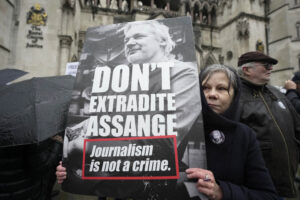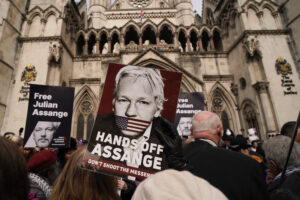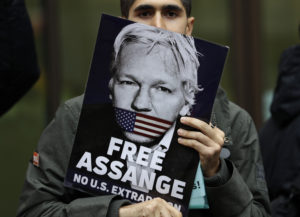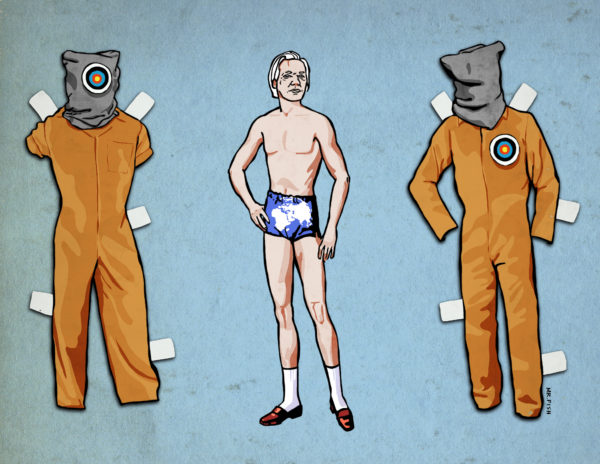Sentencing Testimony Suggests Manning and WikiLeaks Not Responsible for Any Deaths
"For three years Bradley Manning and Julian Assange were accused of murder," writes Matt Sledge at The Huffington Post. "Members of Congress and the administration said their WikiLeaks document dump endangered U.S. interests -- and lives."
“For three years Bradley Manning and Julian Assange were accused of murder,” writes Matt Sledge at The Huffington Post. “Members of Congress and the administration said their WikiLeaks document dump endangered U.S. interests — and lives.”
One of the most memorable, Orwellian and laughably hypocritical examples of that claim came from Adm. Mike Mullen in 2010, when Mullen was chairman of the Joint Chiefs of Staff.
“Mr. Assange can say whatever he likes about the greater good he thinks he and his source are doing, but the truth is they might already have on their hands the blood of some young soldier or that of an Afghan family,” Mullen said.
That claim has always been greeted with skepticism by people who sympathize with the cause of Assange and Manning — exposing the lies, thefts and murders committed abroad and at home by the American government — especially as months and then years rolled by without the presentation of any evidence to support it.
Still, many people who have not closely followed the U.S. government’s persecution of Assange and Manning continue to believe the two men have “blood on their hands” for disclosing state secrets.
The latest confirmation that those claims hold no water come from The Huffington Post’s Matt Sledge. “Before a press corps hollowed out to a skeleton crew after Manning’s verdict,” Sledge writes, “that insinuation is falling apart. Top government officials testifying in open court for Manning’s sentencing in recent days have cited no credible evidence his leaks led directly to any deaths. They have instead spoken to diplomatic sources placed at risk and strayed foreign relations. In the words of one official, some allies got ‘chesty.’ ”
— Posted by Alexander Reed Kelly.
Your support matters…Matt Sledge at The Huffington Post:
The State Department’s current, official take on the cables’ release may come Monday, as Undersecretary of State Patrick Kennedy testifies in court for a full day on damage caused by the cables. Or Kennedy may once again be forced into closed session to talk about any specifics in yet another example of the secrecy that has shrouded the trial, even in its sentencing phase.
During the first phase of the trial, the judge overseeing Manning’s case prevented the defendant from presenting any evidence against claims that his releases caused any harm. So those revelations, endlessly fought over in the press since WikiLeaks’ releases, have all taken place during the sentencing phase of Manning’s court martial. They may shave years off his maximum 132.5-year punishment.
For Assange supporters, meanwhile, the trial testimony comes as long-awaited vindication for the much-vilified WikiLeaks founder.
Independent journalism is under threat and overshadowed by heavily funded mainstream media.
You can help level the playing field. Become a member.
Your tax-deductible contribution keeps us digging beneath the headlines to give you thought-provoking, investigative reporting and analysis that unearths what's really happening- without compromise.
Give today to support our courageous, independent journalists.






You need to be a supporter to comment.
There are currently no responses to this article.
Be the first to respond.